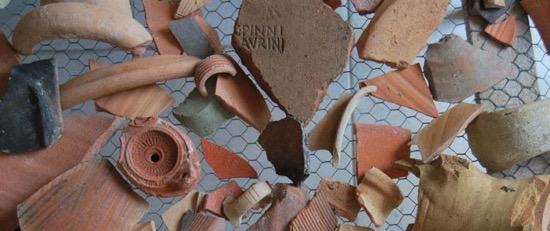Call for Posters and Paper Proposals:
Change and Resilience: The Occupation of Mediterranean Islands in Late Antiquity
An International Conference at the
Joukowsky Institute for Archaeology and the Ancient World
Brown University, 60 George Street, Providence, RI 02906 USA
1-3 December 2017
Proposal Deadline: 1 June 2017
During the last three decades, growing interest in the human occupation of islands has incited the development of numerous surveys and excavations throughout the entire Mediterranean and beyond. Island archaeology has grown exponentially as islands are now considered ideal laboratories for the study of sociocultural transformations and cross-cultural interaction. The focus has been traditionally centered on prehistory and in the colonization of islands. However, the study of islands can make momentous contributions to the understanding of the Mediterranean Sea during the transition from the Roman to the Medieval periods. This conference will explore the Mediterranean islands with a primary focus on the transformation of settlement patterns, landscapes, and mindscapes. The focus will be on change and resilience, on innovation and tradition, on the creation of new settlements, and on the reoccupation of prehistoric sites.
We extend an open invitation to propose posters on any theme related to Mediterranean islands in Late Antiquity. These posters will be displayed and discussed during the conference. All poster presenters will be invited to contribute a paper for publication. Manuscripts will need to be submitted at the starting date of the conference, although there will be time to revise the manuscripts after the meeting to incorporate ideas and suggestions made during the conference. Manuscripts are limited to a maximum of 8000 words and ten to twelve images. Note that authors are encouraged, but not required, to attend the conference; attendance in person is nevertheless not required for acceptance of the poster (and we regret that we are not able to support travel or accommodation).
To submit a poster proposal, please send an abstract of 500 words or less to miguel_cau_ontiveros@brown.edu and catalina_mas_florit@brown.edu by 1 June 2017.
For questions about this CFP, or about the conference, please see our conference website, www.brown.edu/go/changeandresilience, or email Joukowsky_Institute@brown.edu.







